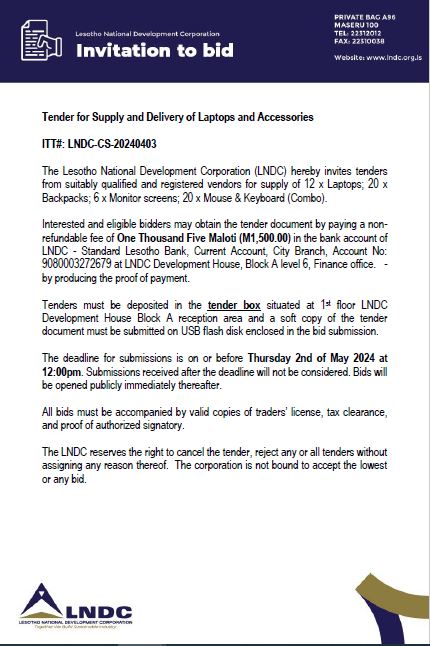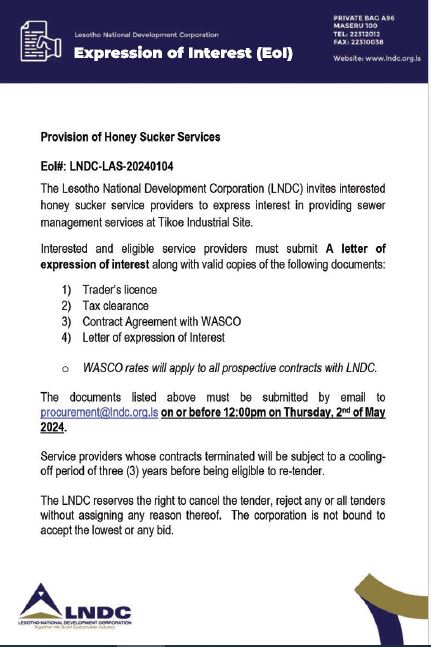Staff Reporter
The government will impose a levy of 90 lisente on plastic shopping bags in a bid to reduce the usage of single-use plastics.
The Minister of Trade, Industry, Business Development and Tourism, Mokhethi Shelile, tabled Environment (Plastic levy) Regulations, 2022, in parliament last week.
According to the regulations, plastic shopping bags which are subject to the levy are those with a minimum thickness of 25-35 microns and polyethylene, polypropylene, polyvinyl, chloride and nylon plastic.
Any other plastic shopping bag that the minister may prescribe by notice in the gazette will be charged a levy.
“A registered supplier of plastic shopping bag shall charge a levy of Ninety Lisente for a plastic shopping bag provided to a customer at a point of sale where a customer wishes to be given the plastic shopping bag,†reads the regulations.
“No person shall import, manufacture, sell or otherwise provide a plastic shopping bag to another person unless the person importing, manufacturing, selling or providing a plastic shopping bag is registered and issued with a permit to charge plastic levy by the director of the department of environment,†they added.
A person who would contravene this law would commit an offence and would be liable to a fine not less than M5,000 but not exceeding M50,000 or imprisonment for a period not less than two years but not exceeding 20 years or both.
The plastic levy will be collected in accordance with the laws and regulations that govern the collection of revenue by the Revenue Services Lesotho (RSL).
A registered supplier of plastic shopping bags who provides plastic shopping bags at a point shall, according to the regulations, ensure that the levy charged is displayed on the receipt, invoice or any documents issued to a customer.
The supplier will also be required to maintain a record of the number of plastic shopping bags provided to customers.
“Submit to the Lesotho Revenue Authority (now called RSL), as may be determined from time to time by the Lesotho Revenue Authority, returns of plastic shopping bags supplied to customers.
“Make a payment of levy charged on a plastic shopping bag as may be determined from time to time by the Lesotho Revenue Authority,†read the regulations.
Where a registered supplier fails to submit a return on the plastic shopping bag provided to a customer, fails to make a payment to the RSL or underestimates the amount of levy charged, the RSL shall have the power to estimate the amount of levy payable.
The RSL will, according to the regulations, deposit the plastic levy into the Environmental Fund.
The fund will be used to clean the environment and finance activities aimed at preventing and controlling pollution of the environment, among others.
Single-use plastics are a major global threat as they take a long time to decompose (+500 years), according to the United Nations Development Programme(UNDP).
On July 14 2021, Lesotho Accelerator Lab launched “Plastic Free Wednesdayâ€, where single-use plastics were not issued to consumers at retail stores on Wednesdays.
UNDP said the major successes of the Lesotho Accelerator experiment included consumers’ acceptance and applause of the initiative.
It said the majority of consumers wanted the number of days to be increased and some even suggested that plastics be completely banned.
“Another measure of success has been the support from local media houses, NGOs, youths who hosted clean-ups and promoted plastic recyclables, and schools hosting the 2021 Lesotho Science and Mathematics fair around the plastic waste management theme,†said UNDP.





